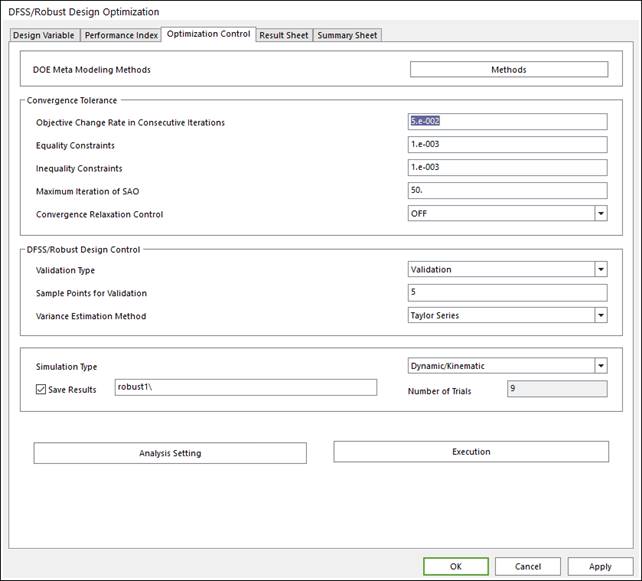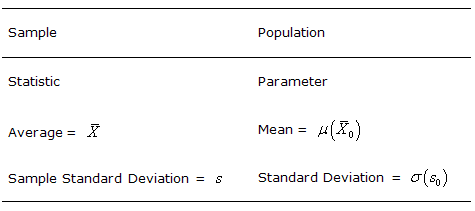
In the window of optimization control shown in Figure 1, one can see ‘DFSS/Robust Design Control’ unlike ‘Design Optimization’.
There are three options in Validation Type:
•None
•Validation
•Validation & Re-Optimization

Figure 1 Optimization control window in DFSS/Robust Design Optimization
If one selects ‘Validation’ or ‘Validation & Re-Optimization’, then he defines the number of sample points in Sample Points for Validation. Now, we explain the validation method.
First, AutoDesign evaluates the sample variance. Suppose that the number of sample points is defined as ‘10’. Then the sample variance is evaluated as
 .
.
In this evaluation, the final design from SAO is
automatically included. Hence, total number of is ‘ ’. When sampling, AutoDesign uses
‘Discrete Latin-hypercube’.
’. When sampling, AutoDesign uses
‘Discrete Latin-hypercube’.
When ‘Validation’ or ‘Validation & Re-Optimization’ is selected, AutoDesign check the violation of constraint using the sample standard deviation.


Table 1 Comparison of Sample and Population
If this condition is satisfied, then optimization is completed. Otherwise, all the sampled points are added to construct the meta-models. Then, restart optimization until converged or maximum iteration. However, if one selects just ‘Validation’, then AutoDesign is completed after evaluating the sample variance. In order to help one’s understand for sample variance, the concept of a population and a sample is compared in Table 1.